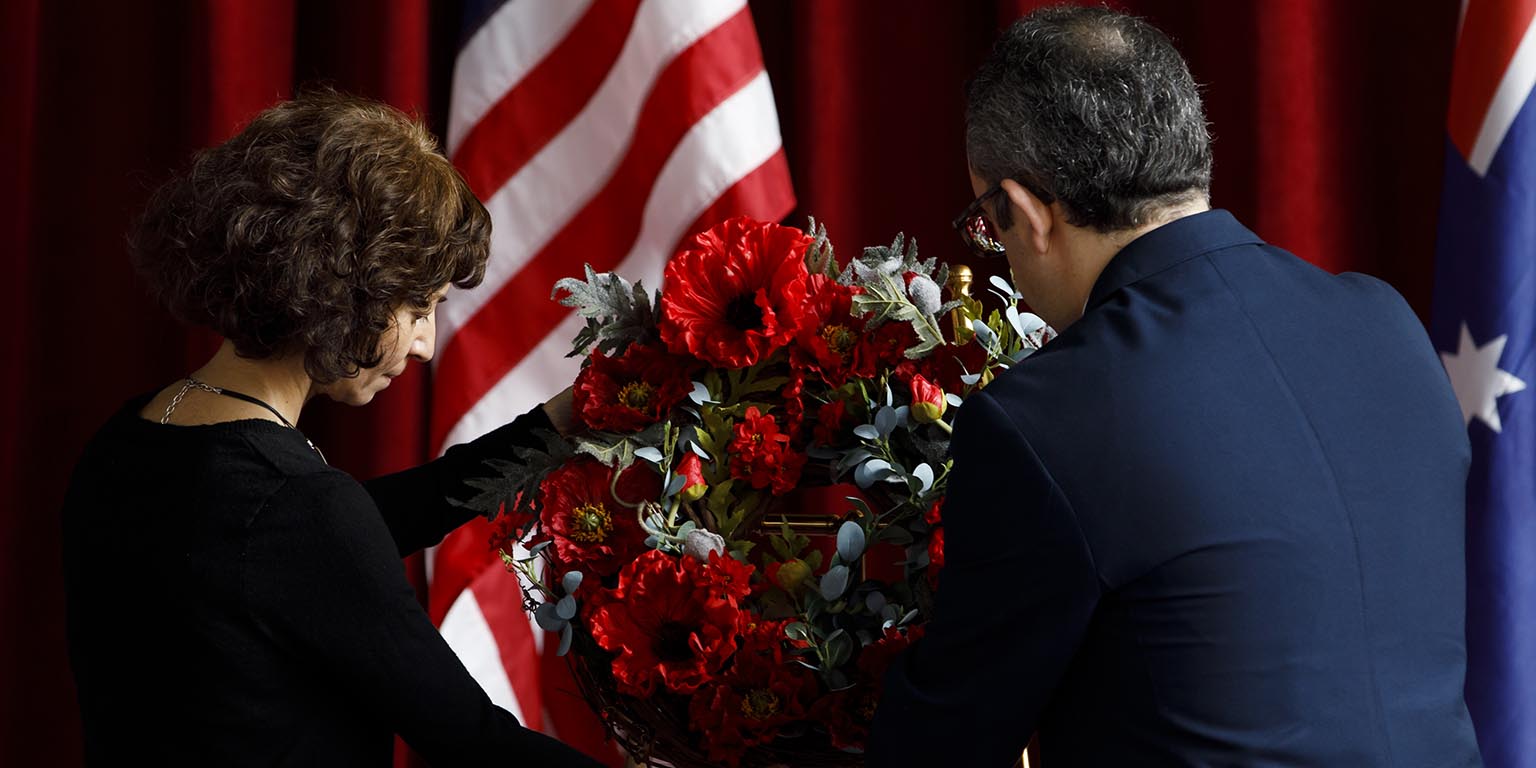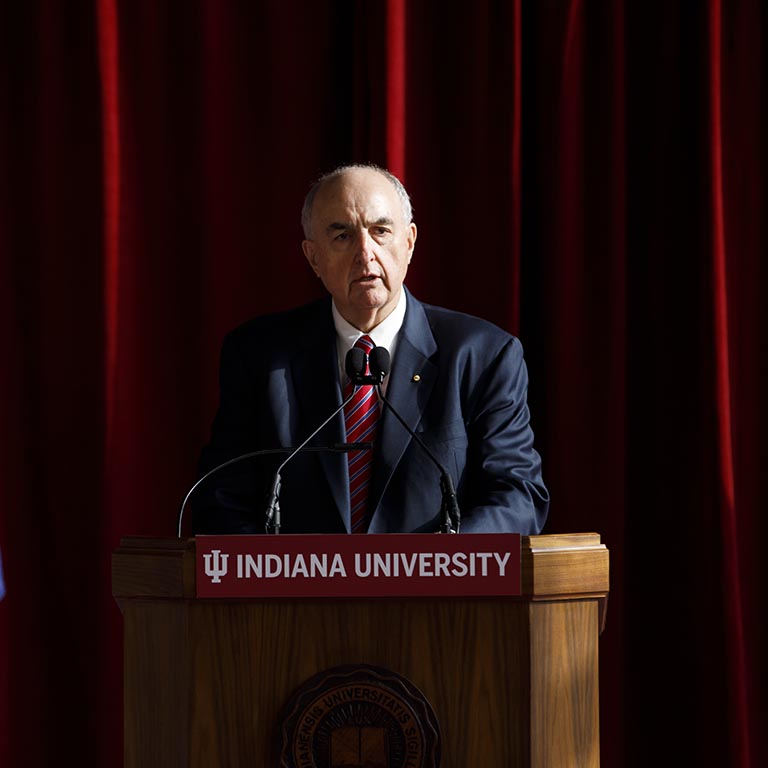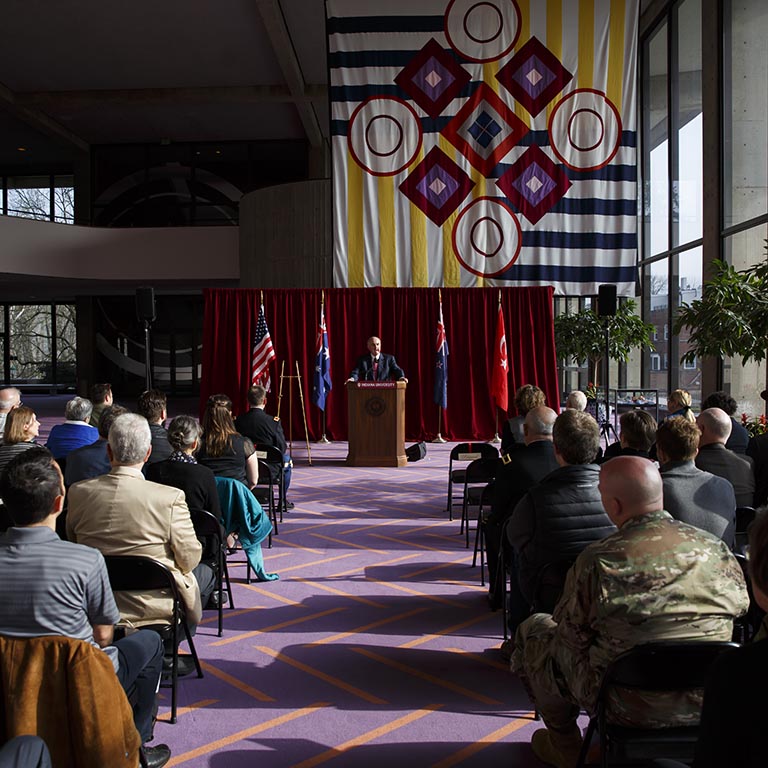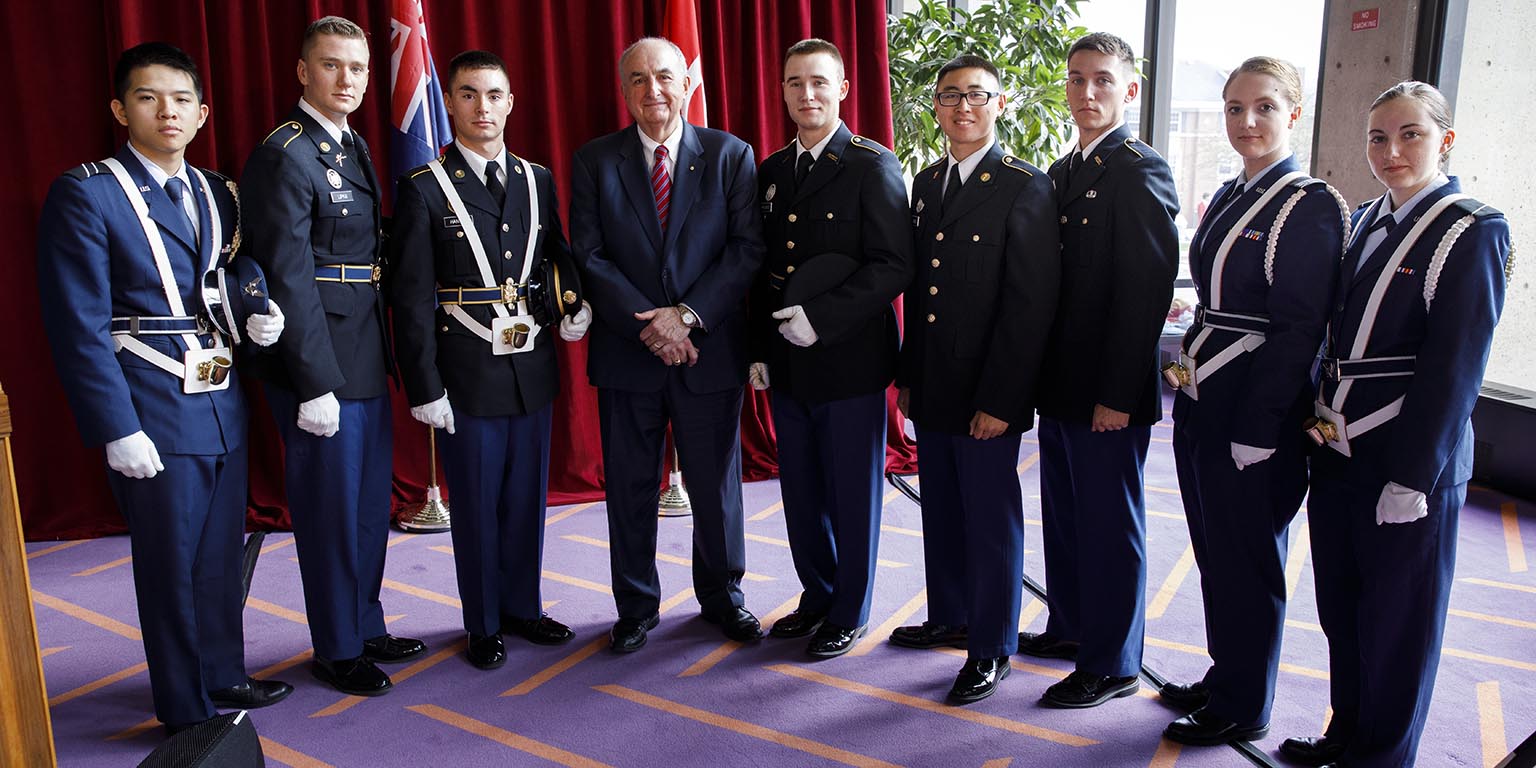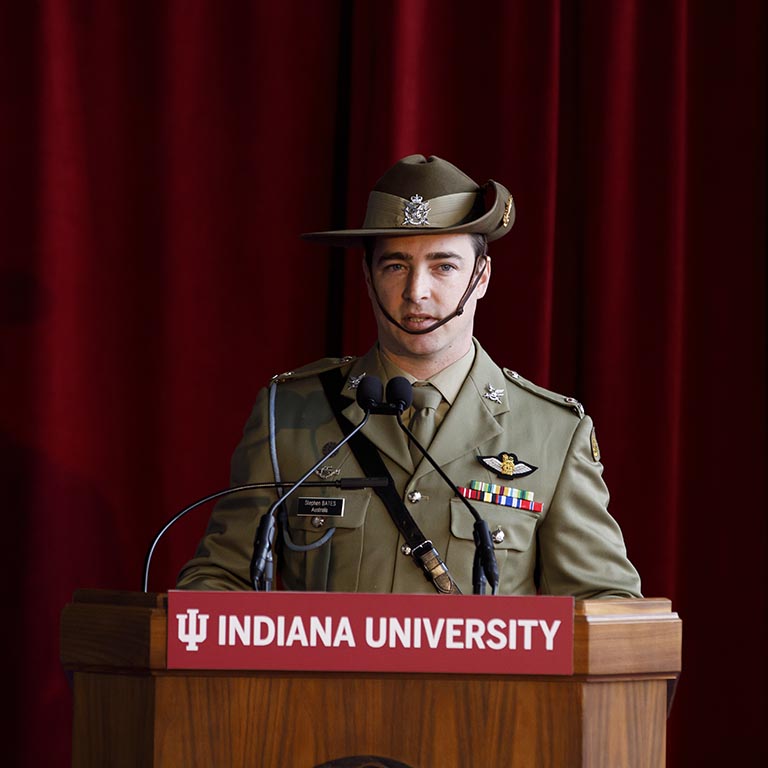This week, Indiana University President Michael A. McRobbie hosted an Anzac Day service at the Musical Arts Center at IU Bloomington. Anzac Day is a national day of remembrance in Australia and New Zealand that honors the Australians and New Zealanders who participated or died in military action.
This year’s ceremony was one of several events around the world commemorating the centennial anniversary of the end of WWI in 1918. Three years ago, IU marked the 100-year anniversary of the launch of the military campaign in 1915 that began active fighting in Australia and New Zealand in World War I.
At the ceremony observed on April 25, 2018, McRobbie shared a message of peace and tolerance.
"As we remember the ANZAC landing and reflect on its deeper meaning, let us remember and strive to emulate the sense of commitment, courage and perseverance that characterized the ANZACs," McRobbie said. "And let us work to ensure that our society continues to value tolerance, mutual understanding, and peace, as exemplified by the friendship between the people of Turkey, Australia, and New Zealand.
"Through our commitment to these ideals, future generations will continue to understand and honor the price that has been paid by so many for the freedoms we all enjoy and the ANZAC spirit will continue to be cherished and remembered."
Anzac Day commemorates the 1915 campaign in which Australian and New Zealand soldiers, known as Anzacs, formed part of an Allied expedition that set out to capture the Gallipoli peninsula. The objective was to capture Constantinople, now Istanbul, and open the Dardanelles to Allied navies.
The Anzacs landed on Gallipoli and met fierce resistance from the Ottoman defenders. The fighting dragged on for eight months, resulting in the death of over 8,000 Australian soldiers before the Allies were evacuated.
"The Battle of Gallipoli also became a cornerstone of Turkish national identity," McRobbie said. "Though the ANZAC soldiers and the Turkish soldiers, led by Mustafa Kemal Atatürk, fought against one another relentlessly under dire conditions—and while both sides suffered devastating losses—the soldiers never lost respect for their enemies on the other side—in fact, they bonded over their mutual sacrifice."
From the top: IU Army and Air Force ROTC color guard cadets Phuc Nguyen, Patrick Lipka, Quin Hanlon, Jacob Krajacic, Jenson Huang, Keegan Filkin, Abigail Stoldt and Makinzi Peace with IU President McRobbie. Stanley Ritchie, distinguished professor of violin in the Jacobs School of Music, reads about the significance of Anzac Day to him. Major Stephen Bates, Commander of the 162nd Attack Squadron, 1st Aviation Regiment, Australian Army, speaks at the event. Photos by James Brosher, IU Communications
During IU's commemorative service, Kaya Sahin, associate professor in the College of Arts and Science’s Department of History, and Rita Koryan, assistant vice president in IU’s Office of International Affairs—both originally from Turkey—laid a wreath on the war memorial.
In his remarks at the ceremony, Major Stephen Bates, Commander of the 162nd Attack Squadron, 1st Aviation Regiment, Australian Army, noted that IU held an Anzac Day ceremony in both April 2015 and April 2018, commemorating not only the Anzacs who in 1915 fought in Gallipoli and suffered incredibly high casualties against the Ottoman Empire, but also those who fought throughout WWI against the Central Powers in which the Allies were victorious in 1918.
The ceremony also included readings from Stanley Ritchie, distinguished professor of violin in the Jacobs School of Music, and Moya Andrews, IU professor emeritus of speech and hearing sciences.
Kirk White, IU assistant vice president for strategic partnerships, a field artillery officer in the Indiana Army National Guard and deputy commander for the 81st Troop Command, served as master of ceremonies. The national colors were presented by cadets of the joint IU Army and Air Force ROTC color guard, and IU Jacobs alumnus John Porter was the trumpeter for the event.
Read McRobbie's Anzac Day speech
Watch McRobbie's lecture "Australian Intervention in the Great War"


